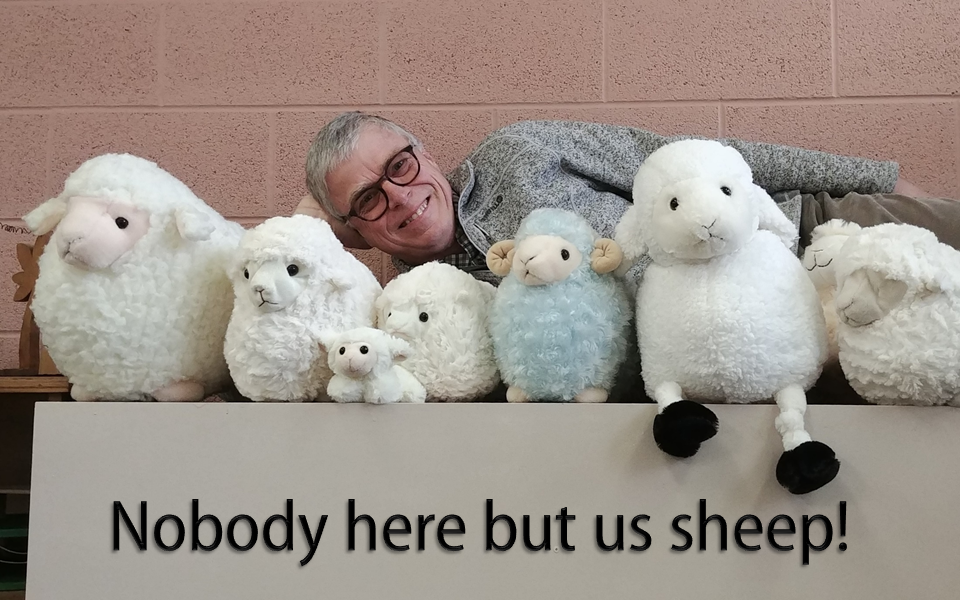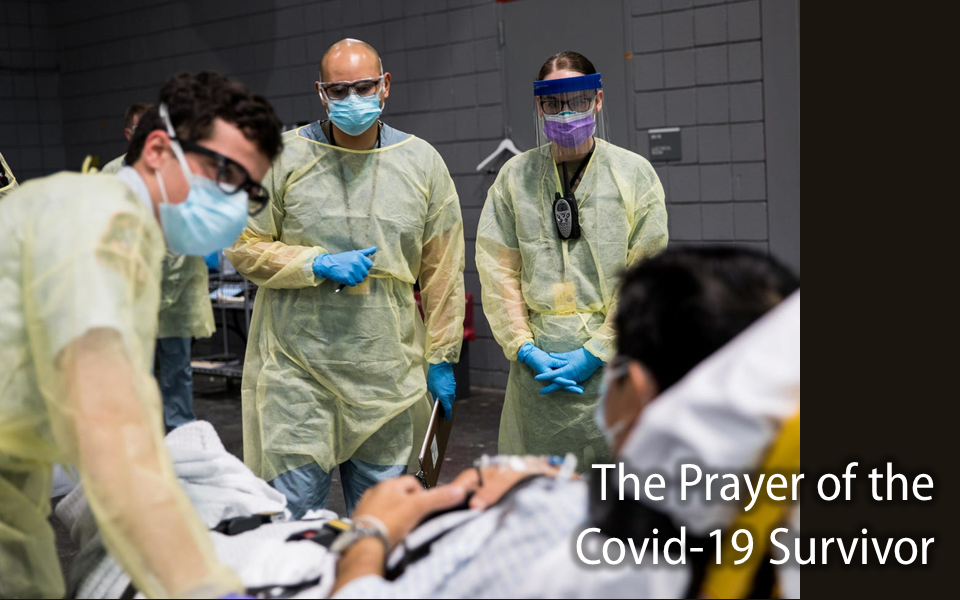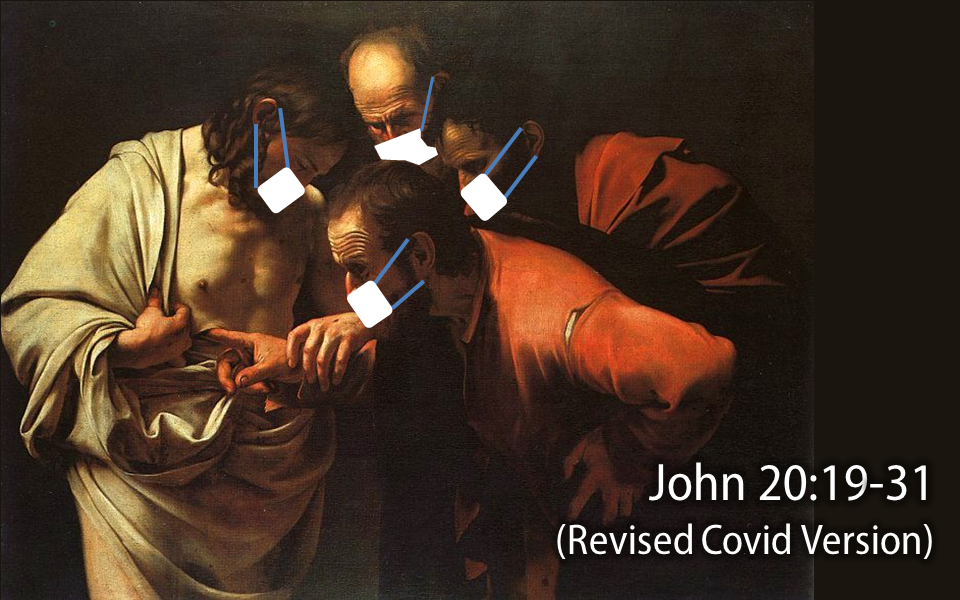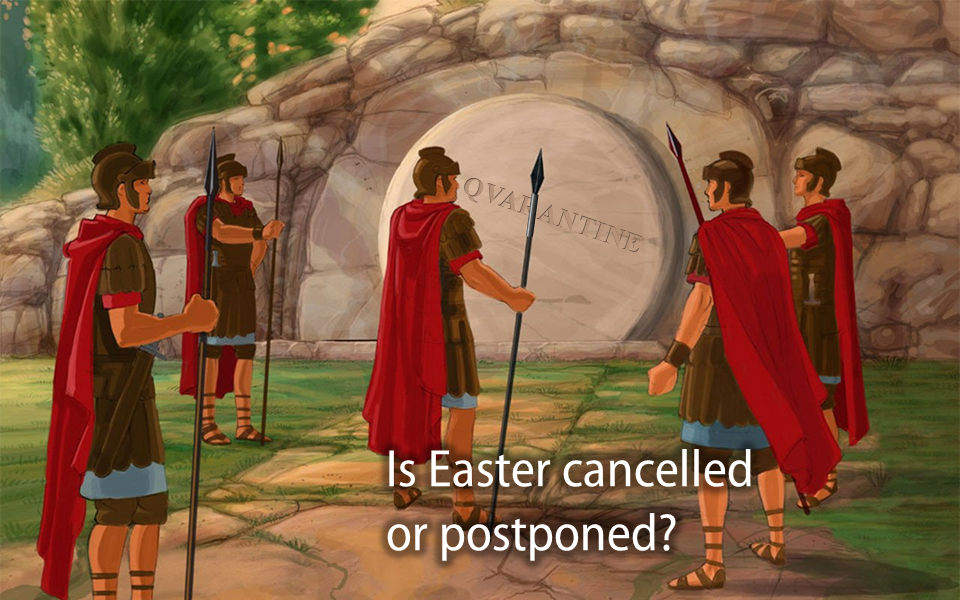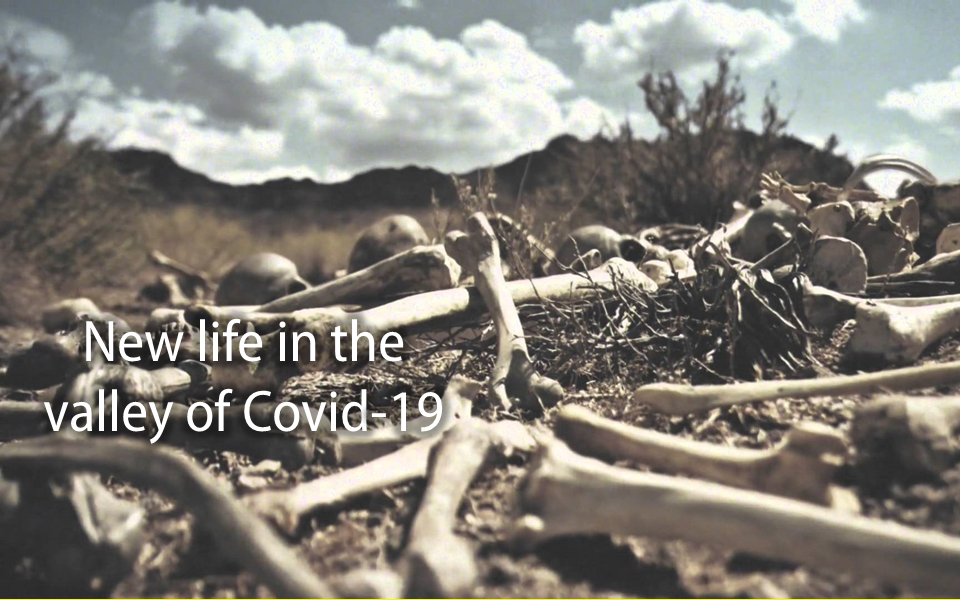Sermon Video:
Hespeler, 10 May, 2020 © Scott McAndless
Acts 7:55-60, Psalm 31:1-5, 15-16, 1 Peter 2:2-10, John 14:1-14
The First Letter of Peter begins like this: “Peter, an apostle of Jesus Christ, To the exiles of the Dispersion in Pontus, Galatia, Cappadocia, Asia, and Bithynia.” That makes it pretty clear that this letter was written to a group of churches in various parts of what we call Asia Minor today. In fact, all of those territories are today a part of the country called Turkey. So it seems pretty clear that this letter was written for some very particular Christians living in some very particular areas. But apart from that, we really don’t know anything about them. What were they dealing with? What were their struggles, their dreams, their aspirations? We really don’t know.
Biblical scholars will argue over exactly when this letter was written and even over who wrote it. Many scholars have expressed great doubts about whether it could have been written by Peter. It is just written in Greek that is far too good and using rhetoric that seems far too educated to imagine that it could have been written by a fisherman from Galilee.
But whether it was written by Peter himself or it was written, perhaps, by one of Peter’s disciples who sought to honour him, it is clearly a letter written to Christians who are struggling to figure out what it means to follow Christ in their time and place. The big clue that we do have to the situation of the people who are addressed is found in that cryptic phrase, “To the exiles of the Dispersion.” Whoever these people are, they are people who see themselves as part of a dispersion – of a people who have been scattered far and wide.
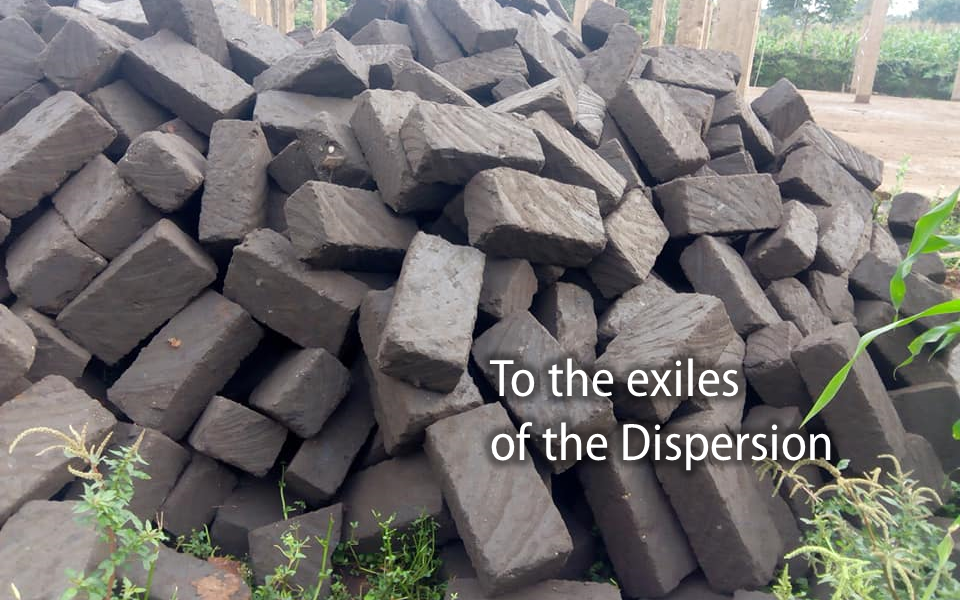
The word that is used here is actually the same word as diaspora, a word that is often associated with Jewish history. The long history of Jews living outside of the land of Israel – a history that began two and a half millennia ago with the Babylonian exile – is generally referred to as the Jewish Diaspora and many Jews around the world still see themselves as part of that diaspora to this very day.
So, whoever these Christians were who had settled in these various parts of Asia Minor, they really didn’t feel as if they belonged there. They came from someplace else – someplace where they had put down roots and where they knew how to be the church. But then they had been spread far and wide from the places where they did feel as if they belonged. Perhaps there had been some sort of persecution that they had fled. Perhaps, if they were Jews (and of course most early Christians were Jews), they were refugees from the war that had been fought between the Jews and the Romans in Judea between 66 and 70 ad. But however they came to be there, they recognized – and everyone else around them recognized – that they didn’t quite belong and they were trying to figure out how to be the church in this new place to which they had been spread. This letter was clearly written to help them to figure that out.
A dispersion or a diaspora… in many ways wouldn’t that be a good term for the situation where we find ourselves as Christians today? We had it all pretty well figured out, you see. We had settled down and put down our Christian roots in a certain place, in a building. And we knew how to be the church in that place. We had practices and rituals and traditions that we had set in place that were all very comforting and that built us up in many ways.
And then something happened, didn’t it? Very suddenly, everything changed and we found ourselves dispersed to the winds so that on a Sunday morning, when we would normally be all gathered together and would greet each other with friendship and joy clasping hands and even sharing embraces, we are now in many different places. It makes me wonder, when this letter is addressed “to the exiles of the dispersion,” is there not a sense in which it is addressed directly to us? We, like those Christians in Asia Minor, are given the unenviable task of figuring out how to be the Church of Jesus Christ in an unfamiliar place. So I cannot help but think that perhaps some of the advice given by the Apostle to them might be very helpful to us in the situation we are dealing with today.
We didn’t read from the opening chapter of the letter this morning though. Our reading is from the second chapter, so what particular advice for diaspora Christians like us might there be in this passage we read this morning? Here is Peter’s first piece of advice for us (and let’s call the writer “Peter” for the sake of convenience despite any scholarly doubts). “Like newborn infants,” he writes, “long for the pure, spiritual milk, so that by it you may grow into salvation.”
Now, if those words are being addressed to people like us, I’ve got to ask, aren’t they a little bit insulting? I mean, Peter seems to be implying that we are all newborn infants – babies who can’t even handle solid food. How can he say that to us or even to those first century Christians in Asia Minor? We are not new to the Christian faith. Ah, but remember that he is addressing Christians in a diaspora. We might well have long experience at being Christians in a certain place and context, but we have been dispersed into this strange new situation and the first thing we might need to recognize is that we don’t know how to be Christians in this new situation. I wonder, is it possible that that is what the Apostle is trying to teach them and us. He’s saying that it’s time to go back to the very basics. Maybe we can set aside those contentious theological debates and differences of opinion that we had with other Christians and just concentrate on being a people who are willing to trust in Christ to feed us.
And, since it is Mother’s Day, I cannot help but take note of the particular metaphor that the Apostle chooses to use here. When he says, “if indeed you have tasted that the Lord is good,” He is quoting from Psalm 34 – a passage that speaks of God’s gentle care for his people. We often quote that verse, for example, at the communion table. But isn’t it interesting that First Peter uses that verse just after telling us that we are all like newborn infants who are craving their mother’s milk? And if we are infants, what are we tasting? The sweetness of a mother’s milk! This is yet another time when the Bible speaks of God’s care for us as being like a mother’s care for her children.
So it would seem that the first piece of advice for us in the Christian diaspora is that it’s time for us to go back to basics and learn all over again what it means to place our trust in God like little babies in their mothers’ arms. But, of course this letter has more to say to us. One of the key problems that the Christians dispersed throughout Asia Minor had was that they didn’t have buildings. All of the other faiths and religions had amazing buildings in first century Asia Minor. The temples of the pagan gods in regions like Pontus, Galatia, Cappadocia, Asia, and Bithynia were legendary for their beauty and magnificence. But the Christians had none. If they were dispersed Jewish Christians, they were also perhaps strongly feeling the devastation of the destruction of the temple of the Lord in Jerusalem, which had been reduced to rubble by the Romans in 70 ad. So they probably struggled with wondering how they were supposed to serve their God without a building. They, like most early Christians, only met in private homes or even in the open air.
We are definitely in the same boat as them when it comes to that. We have all been surprised and troubled by the need to be Christians together without a building in these days. So I’m very interested in what sort of advice the apostle has for them. Is he going to tell them to focus on getting into a building or at least building up some sort of institutional structure as soon as possible? Is he going to put into them the dream of someday being able to build a cathedral to rival the beautiful pagan temples of Asia Minor? Because honestly, that has been the program of the church ever since this letter was written as Christians have tried to build some kind of structure to rival the organizations and buildings of the non-Christian world. You can understand why Christians have done that. We have been taught that you need that kind of thing to be successful.
But First Peter has a big surprise for you if that is what you are expecting. Instead we are offered this surprising invitation: “like living stones, let yourselves be built into a spiritual house, to be a holy priesthood, to offer spiritual sacrifices acceptable to God through Jesus Christ.” Instead of calling on these dispersed Christians to aspire to have religious buildings of their own, he says that they themselves are the living stones from which a new and very different kind of temple can be built. I think that that was a very powerful message to Christians living in that particular situation, and it is also a powerful message to us living in ours.
For one thing, it meant that they didn’t need to compete with the glorious achievements of the Pagan world in order to find honour and glory for their church. Not because they couldn’t, of course. I think we all realize that the great Christian cathedrals of the western world did indeed come to eclipse the architecture of ancient temples in time, but they didn’t need to compete in that arena. The church was not meant to impress with buildings and structures of authority but rather by being living stones who lived lives so authentic, with such kindness and grace, and doing it in communion with others in such a way as to create a whole new structure made out of those living stones. People would see something like that and could not help but give all glory to God.
I think that we have missed the importance of this message in the church over the past two thousand or so years. As I look back at the history of the church, what I see is a Christian Church that has simply tried to mimic the models of success that it sees in the world around it. Not only have we done that with our buildings, but with just about every aspect of our lives together. We’ve done it in our structure and organization. Back in the middle ages, for example, when the model for success was found in the hierarchy of society, the church built a structure that was all about hierarchy with Bishops and Archbishops and Cardinals.
Today, of course, we have a tendency to define success in the church differently and we tend to find that the churches that mimic the success of the business or marketing world are what it is all about. In many ways we are still like those Christians who were dispersed in Asia Minor. We’re looking around at the magnificent Pagan buildings and aspiring to build something like them. But the Apostle says that all of that is misguided. We have a different identity and we have a different definition of success.
We are living stones and, yes, he suggests that those living stones might even look like rejects as far as the world is concerned and that we, like Jesus, are the stones that the builders rejected and just left dispersed around the work site. That is because we are not made to impress in the way the world seeks to impress. But, when we work together and we manage to support and uplift one another, we can build something truly amazing.
It is not easy to be a people dispersed, ripped away from the things that are familiar and comforting. But I guess that what First Peter is saying is that even if that is where we are right now, our God has not abandoned us and can be with us in this strange place. If we are missing that sense of presence, that is all right because these are indeed unfamiliar times. I think that if we’re going to follow the apostle’s leadership on this one, what we need to do is to go back to the basics, the mother’s milk that nourished us in our first faith as we learn to love Jesus all over again. And then we need to be willing to be those living stones and to be built into a new structure in this strange place, a new way of working together and supporting one another that maybe doesn’t quite fit the models that we’ve been used to and that may not impress in the ways that the world measures success but that God will use to do great things.
